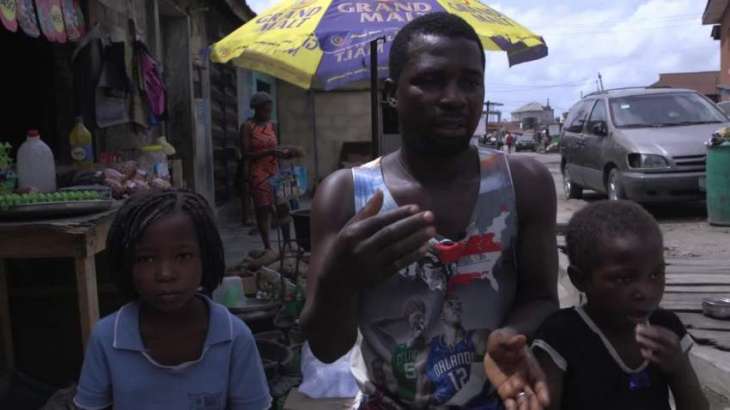Africa's essential food supply chains are threatened and millions of vulnerable people, especially in Southern Africa, are at risk of malnutrition due to the continent having gone into lockdown in an effort to stop the spread of the coronavirus, Deprose Muchena, the regional director from Amnesty International, has told Sputnik
MOSCOW (Pakistan Point News / Sputnik - 30th April, 2020) Africa's essential food supply chains are threatened and millions of vulnerable people, especially in Southern Africa, are at risk of malnutrition due to the continent having gone into lockdown in an effort to stop the spread of the coronavirus, Deprose Muchena, the regional director from Amnesty International, has told Sputnik.
The continent has been overall reporting a relatively low number of coronavirus cases in comparison to Europe, the Americas or Asia, but experts say this can be partially explained by the lack of testing capabilities and fragile health care systems in many countries across Africa. According to John Hopkins University, South Africa and Egypt are currently the two epicenters of COVID-19 on the continent, with 5,359 and 5,268 cumulative cases, respectively. African countries have largely followed the example of western nations and imposed similar coronavirus response measures and lockdowns to curb the spread of the virus.
"We are talking about millions of people in Southern Africa being at risk and vulnerable to hunger because the incomes that they make have been dwindling as a result of the lockdown," Muchena said.
The regional director at Amnesty emphasized that long-term lockdowns could also pose a risk to food production in East Africa, "where locusts are destroying fields."
Muchena warned that malnutrition would exacerbate the long-term impact of the virus on the continent where a significant portion of the population suffers from pre-existing conditions like tuberculosis and HIV, is homeless or lives in indigenous communities, and has low immunity to infectious diseases.
"Any deprivation of additional nutrients they need in their bodies feeds onto pre-existing disease patterns. That undermines the capacity for these governments to be saying 'we are fighting the virus,' when the right to life is itself being threatened," he said.
Muchena added that lockdowns "undermined" people's ability to survive.
Muchena, who is in charge of Amnesty International in Southern and Eastern Africa, said that copying the western approach did more harm to African nations, and countries on the continent should come up with other ways to deal with the pandemic.
"It is important for African governments not to copy and paste what European countries are doing, but to have very specific responses that meet the needs of their own population," Muchena said.
Earlier in April, the prominent human rights watchdog raised alarm, saying that putting millions of people across Southern African states into lockdown to curb the spread of the epidemic risked starving them.
"Human rights groups across the continent are asking for specific measures that respond to the needs of the population that is now locked down. The prevention, the tracing, the treatment is all ok, but people live on food, people live on water, and those are not available," Muchena said.
"You are talking of a continent that is already afflicted by a triple burden of unemployment, poverty and inequality. And with unemployment and inequality so high across the African continent the majority of people really live from hand to mouth, meaning that they cannot afford to remain in lockdown for a week longer," he argued.
Governments must take measures to give people financial means to stockpile food or access it in different markets, Muchena stressed.
He warned that Africa's public health systems were not strong enough to withstand the impact of the health crisis if a significant number of people required hospitalization. In South Sudan alone, they have four ventilators and five vice-presidents.
Therefore, African governments should put the money generated through the European Union's freeze on debt repayments into public health care to better respond to the people's needs, Muchena insisted.
"We should ensure that governments are implementing human rights-consistent responses to the pandemic ... Once resources are there it's important that governments in Africa prioritize and deliver on the specific human rights' needs of especially marginalized groups," he said.
Growing food insecurity risks are amplifying the social unrest that is already very real in parts of Africa as people struggle under the lockdown.
"We are seeing it already. In South Africa ... and this is in the country where we are actually seeing significant social protection response, compared to other countries," Muchena said.
He estimated that almost 80 percent of Africans were employed in the "informal sector," with millions more living on social benefits.
"With 80 percent of the economies locked down, when [the informal sector] provides the daily incomes under 1 Dollar a day, it just creates that social condition for protests to take off," he warned.
Amnesty International has also condemned unprovoked police brutality against people in Kenya and Zimbabwe who violated lockdown measures in order to feed themselves and their families.
"We have reported cases of people being arrested while they were going to buy food in Angola. In Zimbabwe ... police raided a market place, causing panic and people running away, leaving their food which police confiscated," Muchena said.
The backlash against police has prompted police chiefs in Uganda, Kenya and Namibia to apologize in the past two weeks, he added.
The Amnesty International official stressed that foreign assistance to the poorest African countries was essential to avoid a large-scale humanitarian crisis.
"It's important for the international community to respond to a new course for international cooperation and assistance in order to create fiscal space African governments will need in order to mobilize new resources to reinvest in the public health system and social protection," he said.
Africa requires a new framework for cooperation, increased investment and possibly a full debt relief "especially for low-income countries" with limited resources, according to Muchena.




